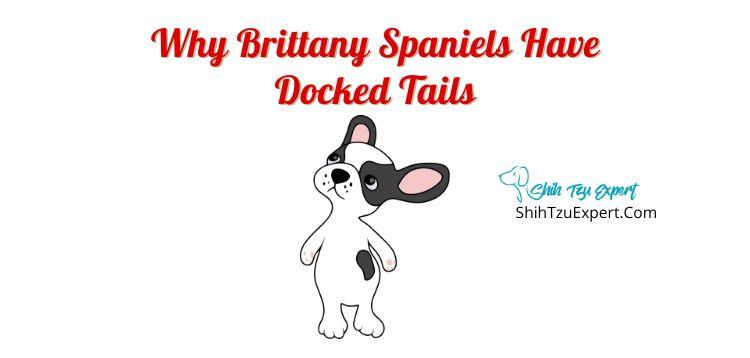Benefits & Drawbacks of Pawternity Leave
We live in a country where many Americans believe they have seen and heard it all. Though, I believe that this interesting little topic may be a cause for some speculation… Should working Americans have the right to what we call “Pawternity leave?” (otherwise known as “furturnity leave”) Let me explain in more detail before you make any premature assumptions about the matter. The term pawternity seems to imply a type of maternity leave for people with animals.. Which although is a fact; it doesn’t fully extend on what the whole ordeal en-tails. Pet-friendly employers across the nation are not offering paid time off (or vacation days) to help out your furry friend in any way you want. Have you ever brought home a new puppy and had to go through the insane amount of trouble to train them? Think about chewing furniture, making messes on the floor, biting, etc. All normal puppy things! What if your cat is having complications with her pregnancy and need extra medical attention from you or a professional? Wouldn’t you want to be there for her in such a critical time of need? (fix your fur babies!!) These things do in fact acquire a lot of attention and this writer believes no animal should be neglected from those things.

BENEFITS:
Let’s face it, millennials have taken over.The average age of pregnancy in women is now 26.3 years of age, this data comes from the National Center for Health Statistics. Compare that to 1980 where the average age was 22.. Millennials are the leading generation in pet ownership; Millennials also make up The largest population of the US workforce. That’s 3x larger than the late 90s! Benefits of pawternity leave can include preparing young people for tiny humans if they want them. Having children is a big step in any person’s life, a dog is still a big responsibility, as a cat is, or any critter. Did you know 44% of millennials are unsure that they want to raise a family? Pets are treated like children now days. (Which also causes a lot of speculation) People put a lot of their love and attention into their fur babies. Let me give you another example. Imagine having a sick or injured domesticated animal who is in hospice. When a family member is about to pass on, we who brought them happiness wish to be there in their passing.

As do the animals! Animals are now doubling as emotional support agents for people with disabilities which is amazing and in this writer’s opinion adds onto why they may deserve their own benefits! I believe they would do the same for us in our shoes. I’d also like to point out that some women cannot conceive; pawternity could be a very healing and wonderful experience for them! for families who cannot have blood children and animal could be the closest thing for them. This could help them to feel more normalized in society. A recent HABRI survey found that Nationwide insurance employees are 90% willing to recommend pet friendly to potential workers. Plus less that 65% of employees at non-pet friendly workplaces felt very similar. Worker productivity seems to increase as well, as studies suggest. After all autonomy is key to happiness of employees! And can you imagine having paid time off to spend with your dog or cat? There are some businesses that provide between one and three days to mourn their loved fur baby. It really does sound too good to be true. So why not have pawternity leave? Lets check out the negatives.
DRAWBACKS:
Some drawbacks, this writer has found would be how much pawternity leave would actually benefit the worker and employer. A big setback seems to be that not all employees have pets, making it harder for them to qualify for time off causing them to have competing work flexibility with coworkers. But here’s were some interesting facts to come in. As of 2016 only 14% of civilian workers had access to paid family leave according to NCS. Under the family and medical leave act there is a guaranteed 12 weeks of unpaid family leave including parental leave. This is only available to 88% of Civilians workers in the US.

Animals are also capable of taking care of themselves by nature. Sure we domesticate, but the creature, even domesticated logically speaking can by all means take care of itself under certain circumstances. We however must always give them a healthy diet and water to drink! We can also talk about how far the policy extends. How many leaves can you get a year if more than one pet has an issue you need to be home for? Is this just another funky trend set for the now destined to die out? This writer also has to ask if it just cats, and dogs, or are more exotic pets like birds, frogs, or a simple goldfish in the mix? Now a goldfish could be considered quite silly… Some companies do you acclimate for other types of animals. Most companies only allow these leaves for dogs and cats. I believe this is a slight hole in the system.So this writer wants to know where we draw the line? Another drawback that this writer finds is just 11% of pet owners say their animals are allowed in the workplace. This allows me speculation that most companies don’t necessarily consider pets as family and don’t believe they require benefits of their own. Considering this benefit could be a temporary trend, this writer would not necessarily disagree.?
THINGS TO CONSIDER, AND REVIEW
- How much time is available for mourning or adjustment with your pet? If this were to be a fair policy, it would need to be consistent per work place. Some companies offer less days for a Bereavement or welcoming a new animal home. Where are some Companies offer much more time. This writer sees no issue with a different timeframe in unrelated companies
- Would companies offer multiple days for say someone who had a few pups pass a few months between each other? Would excessive pet-based leaves affect your work in any way? Or the business itself? Is there a line drawn for pet Bereavement?
- These types of perks from businesses are more than just the coming home of a pet. This writer has researched and found that some policies cover mourning time as well.
- What really constitutes a pet? Of course we know cats and dogs. But what about horses, lizards, snakes, birds… fish??? If some companies acclimate to other types of animals again I must say where do we draw the line? I have compassion for your pet fish but I’m not sure you should miss work because it passed away.
- Could pawternity leave positively affect people who have no capabilities to reproduce? Women who cannot have children are very likely to become attached to their pets much like children. I believe that a policy like this may be very beneficial to people in these circumstances. A lot of Humans get backlash for considering their pets like children. But in some cases, they quite literally are. Sometimes an animal is the closest thing someone can get to a child.
- How much will Americans be paying taxes to benefit from these funds? Since many companies are not implementing this policy I do not believe much effect will be added to American taxes but we’ll see in perhaps a decade.
- Should we implement this policy when human mothers don’t have for maternity leave yet? This writer speculates perhaps we should focus more on women’s health issues rather than the issues of cats and dogs.
FINAL SUMMARY
I see many ups and downs to the idea of pawternity leave. The fact of increasing worker happiness is an insane plus for me. I believe that animals enrich our lives with happiness and purity.The fact that millennials make up the majority of the work force and have the highest rate of animals generationally speaking gives me more support for the idea. Having animals in office spaces seems to make workers happier statistically speaking.I’m all for workforce happiness. Plus the idea of helping families who cannot conceive and believe the closest thing to a child is there fur baby pushes me toward a good view of this topic. However, I still see the holes in the plot. If half of the work force does not have a pet, they do not qualify for the benefits.
I conclude that both sides have equal points that should be validated and looked into. I want all people to see animals as equals, with insurance or not. It has been paw-itivity Delightful writing this article for you and I hope you enjoyed it. I leave you wito ask yourself, how do you feel about this whole pawterniry leave

QUESTIONS TO ASK YOURSELF:
- Do you think pawternity leave would make a positive impact on the workforce/businesses of America? Are you OK with dogs inside of your office or do you think they belong in the doghouse?
- Why do you think millennials are waiting on having children? Is it because owning a pet is cheaper? Do you see an issue wage gap between millennials and baby boomers? How do you feel about that?
- Do you believe that animals are family and should be treated as such? Or do you believe that they’re just animals and not comparative to humans in that aspect?
- Where do you think we draw the line at animal insurance? Is pawternity leave the most you think the US will ever implement; how far do you think these policies will go? Think if you have any ideas for future ideas of pet insurance and how it could progress into the next century.
- Are cats and dogs all we should consider when we think of this policy? Or should we include the exotic animals as well? Should a fish that can’t swim properly be able to get a bionic fin, while the owner misses work for the operation?
- Do you believe that you will benefit from these type of policies if they were to be implemented at YOUR workplace? Would bring your pet to work day bring you joy and make you happier with your company? How do you think your coworkers would react if you had a bring your pet to work day?
- Do you believe these policies should even be thought about at all with other important crisis’ at hand? For instance, how do you feel about some work places
- still not offering maternity leave for women?
- If the people do not have pets and do not get the same benefits as people with pets, how would that make you feel? Do you believe that all workplaces should include consistent benefits for all workers?



![10 Best Dog Crates for Separation Anxiety [High anxiety dog crates 2019 Reviews] 10 Best Dog Crates for Separation Anxiety [High anxiety dog crates 2019 Reviews]](https://shihtzuexpert.com/wp-content/uploads/2019/05/5-3.jpg)
![12 Best Dog Foods for Toy Breeds [Buyer's Guide] 12 Best Dog Foods for Toy Breeds [Buyer's Guide]](https://shihtzuexpert.com/wp-content/uploads/2019/05/3-5.jpg)
